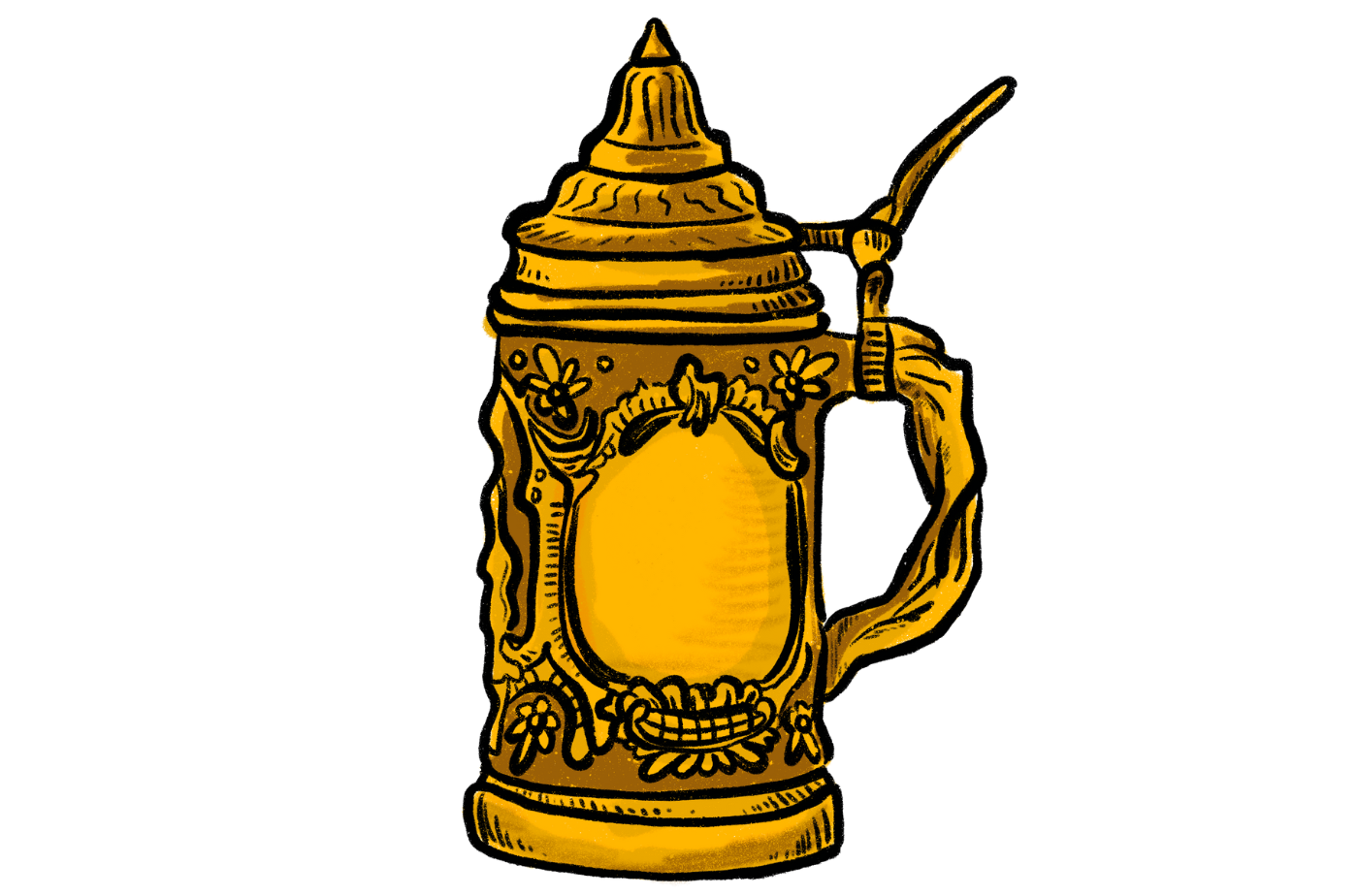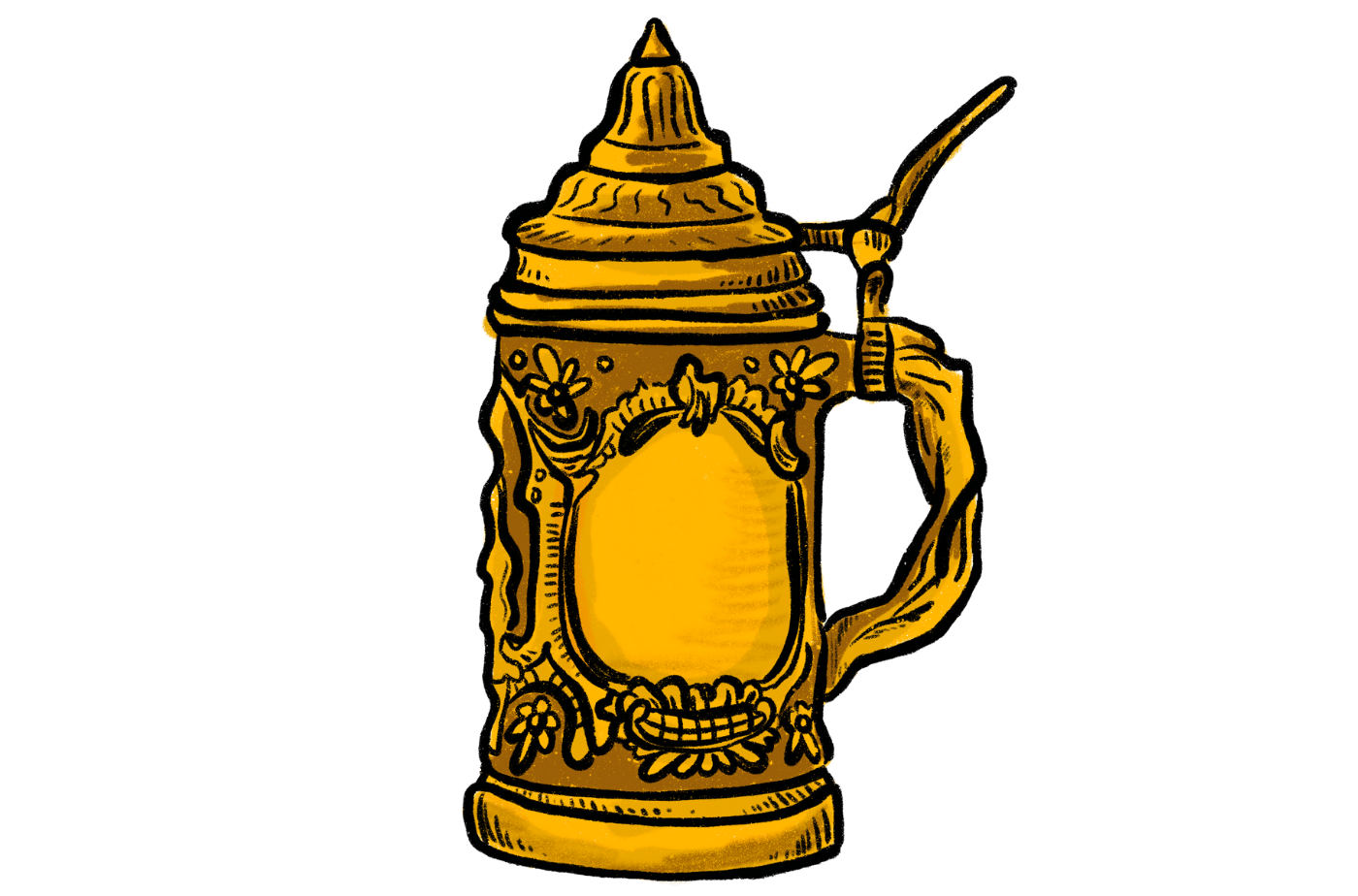

From ancient elixirs to the start of crafty brews.
Beer, just like wine, has a wondrous history. Traces of what we could roughly call beer have been found at Godin Tepe - the Iranian archaeological site that harks back to the golden era of Mesopotamia - in 3500 BCE (fun fact: Godin Tepe is thought to be the site of an early corner shop, where you could pick up beer and a few groceries).
Beer's journey goes further than that, perhaps right back to 10,000 BCE, with theories rolling around that beer came about as a happy accident while making bread, not unlike the creation of another magical substance, butter. But that ignores the likely story of why beer came to be - because humans also love drinks with fun side effects (especially when they're as tasty as beer).
Of course, the other reason why beer became popular is because it's safer than water. Like wine, fermented beer was a cleaner, safer liquid than whatever passed off as drinking water in 4,000 BCE…

Beer and the Mesopotamians (4000 BCE)--earth
The people of Mesopotamia, an area of present-day Iraq/Syria, held beer in such high regard that it became a dietary staple and a form of currency, traded like wheat or meat. The love for beer was so profound that it inspired the famous 'Hymn to Ninkasi' poem, which detailed the steps to making beer. The Sumerians/Babylonians, also from Mesopotamia, are believed to have invented straws to enhance the beer-drinking experience.
Beer in ancient times was quite different from what we know today. It was thick, like porridge, and made from fermented, twice-baked bread. Brewing and baking were intertwined, and there were twenty recipes for making the delicious barley-based beers, with varying levels of alcohol depending on the occasion. Beer soon spread throughout the Middle East, particularly in Egypt, where it was praised by everyone from slaves to pharaohs. Another fun fact: pyramid workers were paid with 10 pints of beer per day!
Beer and the Germans (800 BCE - 900AD)--racy
Meanwhile, the Germans have a rich brewing tradition too, with ancient beer jugs found in a Bavarian tomb (dating back to circa 800 BCE) containing beer with oak leaves as a preservative. Descendants of those ancient Germans were among the first to add hops to beers, with the records of the Benedictine monks in the 9th century using hops for flavour and structure. Brewing was initially a task for women, known as the Hausfrau, who made beer at home to supplement their daily meals. Still, the German/French monks became the most famous brewers, likely because making beer would have been a much more entertaining part of daily monastic life than ringing bells and such.

Beer comes to England (1300AD)–-wines
By the 14th century AD, beer had jumped the Channel and landed in England, where it quickly became wildly popular. Dutch immigrants are thought to have brought beer first, and soldiers from the Hundred Years' War returning from the continent had returned with a taste for the amber liquid. In this period, beer went from being a family backyard operation into a commercial enterprise with more hops, more flavour and more alcohol.
Back to Germany for the Reinheitsgebot and lagers--vegan
By the 1500s, beer was super popular throughout Europe, with the style largely wild, likely sour ales made with things like tree bark and fruit for flavour. But in Bavaria, they were doing something revolutionary. Unlike everyone else, these southern Germans used a unique strain of local yeasts that allowed for brewing slowly at cold temperatures and producing fresh, clean more like we see today.
They were brewing the first lagers.
Brewing was taken seriously in Bavaria that in 1516, the Duke of Bavaria, Wilhelm IV, issued a proclamation on what ingredients could go into a beer. This 'purity law', or the Reinheitsgebot, dictated that beer could only be made from barley, hops and water. Even yeast was excluded (because it was assumed that brewers would use the leftover beer from the last batch to make the next).

This law still stands today, with all German beers only allowed to use those ingredients (with a little wiggle room for wheat), and so much of modern beer still ascribes to that recipe.
The history of beer in Australia (late 1700s)--cellar
There's a long history of beer and brewing in Australia, too, with Captain Cook's men said to have brewed beer as a clever means of combatting scurvy and providing safe drinking water (ignore the alcohol).
In the colony's early years, rum was the drink of choice (and a form of currency); however, the unrestricted consumption of rum led to widespread public drunkenness. Instead, local authorities pushed beer as a healthier option!
By 1796, Australia had its first legal pub, with brewer John Boston opening the Mason Arms in Parramatta. Boston, an ex-convict, crafted Australia’s first beer using corn and bittered with love-apple (aka Cape gooseberry) stalks.
The Craft beer revolution (late 1900s)--aromatic
In the centuries since then, beer has become increasingly homogenised. Lagers took over the popularity mantle from ales, and breweries became larger and more technologically advanced. Globally, the amount of breweries hit rock bottom despite more beers being emptied.
But then, in the 1960s, on the back of post-war homebrewing popularity, a few maverick Californian brewers started to break the stranglehold and opened small breweries doing different things. Soon after, the English Camra organisation was formed to celebrate English craft ales, and pretty quickly, new breweries were popping up all over the planet.

Want to know what really supercharged the craft revolution? Hops. Again, the Americans were experimenting with using fresh hops (and lots more of them) in their brewing by the early 1980s. These new styles of ales had mesmerising aromatic and wild freshness that made the crowd go wild.
Craft beer had arrived.
Nowadays, brewing is a hotbed of innovation, with beers in a range of wild colours, including equally wild flavours, and from more brewers than ever before. Fancy a Double Vanilla Custard Pancake Imperial Nitro Thickshake IPA? You've got it!
About the Author
Andrew Graham is a master winemaker and viticulturist (aka a grape guy) who fell into the wine industry as a teenager and never looked back! Voted the 23rd most trusted wine critic on the planet, Andrew judges at wine shows across the globe and runs foolishly long ultramarathons in his spare time (swiftly followed by a recuperative glass of wine or a frosty beer).
Do you know your wine personality? If your answer is no, take our quiz to find out which wines to pick up next and build your box!
Build my box





